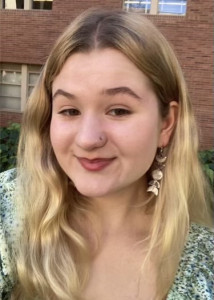
Today, May 5 is the National Day of Awareness for Missing and Murdered Indigenous Women, Girls, and Two-Spirit People. Often abbreviated as MMIWG2S, this day is a solemn remembrance of the countless Native people who have been harmed by gender-based violence. Statistics show that four in five Native women have experienced some form of violence in their lifetimes and are murdered at a rate ten times higher than the national average. In 2021, 5,203 Indigenous women were reported as missing by the FBI National Crime Information Center. Young women are primarily targeted, but cases of missing and murdered Indigenous members of the LGBTQ+ community are often underreported.
However, the real human impact goes far beyond statistics. Every day, another Indigenous woman goes missing. Families and communities are torn apart when they lose someone they care about. It is devastating to lose a friend, relative, or community member. Countless Native women across generations have grown up with the fear that they could be assaulted, kidnapped, or murdered simply for being an Indigenous woman. Even young girls are aware of the danger they are in. For them, MMIWG2S is impossible to ignore, yet much of the rest of the country pays little attention to it.
Canada has recognized the crisis of MMIWG2S as a genocide, but the US government has yet to do so. Systemic state violence and the legacies of colonialism and gendered colonial oppression all work to perpetuate this crisis. Institutions that claim to protect the people, such as the police, the legal system, and the entire federal government, fail to do so, and often are active perpetrators of violence. Proportionately, Native people are killed by police more than any other group. They face racist, discriminatory courts when trying to get legal justice for their relatives and community-members, and MMIWG2S are given little media attention.
MMIWG2S is a continuaion of the initial genocide and settler colonialism that founded the United States centuries ago. Since the late 15th century, Indigenous people have been attacked, killed, enslaved, stripped of their lands, forcibly sterilized, sent to reservations and residential schools, and forced to abandon their culture. Today, the legacies of this injustice are ongoing. Voting rights restrictions, the building of environmentally-destructive pipelines in sacred lands, and attempts to overturn policies like the Indian Child Welfare Act all serve as extensions of colonial violence. MMIWG2S exemplifies this along multiple axes of oppression. Colonial racism and gender-based violence intersect to create this crisis. It is not simply violence against women or Native people, but specific violence targeting Native women at the intersections of these identities, along with queer, nonbinary, and Two-Spirit people who also face gender-based oppression.
It is clear that action is needed. Here at STAND, we stand in solidarity with the Indigenous communities working to protect themselves from systemic racist violence and honor the memory of all MMIWG2S. This list of resources provides hotlines for Indigenous women and all people experiencing violence, relevant government reports and scholarly articles, and a list of organizations currently taking action. You can also attend one of the National Indigenous Women’s Resource Center’s virtual events today to learn more or take action to support Indigenous women here. If you want to learn more about the work that STAND does to address atrocities against Indigenous communities, you can sign up for our United States Action Committee here.
~
Grace Harris is a second-year International Development Studies major at UCLA who serves as the United States Action Committee Lead for STAND. She is also an Education and Outreach Co-Lead. This is her third year on STAND’s Managing Committee.
